Report Presentation
Focus on Europond yields in Africa during 2020
At the beginning of the COVID-19 health crisis, Eurobonds' secondary market yields issued by African countries recorded significant increases. This performance is mainly attributed to investors orientation towards more liquid and better quality assets. Indeed, in a context where risk aversion has reached its peak, investors have preferred to perceive a low or even zero return rather than hold a high-yield asset but carrying a significant risk. As indicated by the positive evolution of precious metals, which benefit from their status of "safe haven". In this context, Gold prices have evolved this year through an upward tend hitting a high of $ 2,063/Oz in early August before returning to $ 1,919/Oz currently. In the same way, Silver prices has undergone an evolution broadly similar to that of Gold. In fact, the Grey metal has posted a significant increase of 40% since the beginning of the year to settle at $ 25/Oz.
Several events succeeded during Q2-20, and led to a reduction in risk apprehension and consequently to curb the surge in risk premiums recorded since the end of March 2020 following the outbreak of the pandemic. The first is the announcement of ‘Paris Club’ membership to establish a Debt Service Suspension Initiative, or DSSI, for the poorest countries which will apply for it. If they comply with several conditions, the volunteers selected by the Paris Club will then see the repayment of their bilateral external debt (including principal and interest) due in May-December 2020 be deferred and added to the repayments due between 2022 and 2024. Second, the unprecedented measures taken by the major international Central Banks in order to limit the negative effects of Covid-19. In fact, in addition to monetary policy decisions which consist in keeping key rates at low levels, financial institutions have taken unprecedented actions to extend credit and support the economy during the pandemic. In this context, Fed injected nearly $ 7,000 Bn into economy, much more than it did during the 2008-2009 financial crisis. For its part, the European Central Bank has launched a Pandemic Emergency Purchase Programme (PEPP) with a total amount of €1,350 Bn by June 2021. An abundant global liquidity hangs over the world economy inspired new confidence in the secondary Eurobond markets.
During Q3-20, we witnessed a further rise in Eurobond yields from African countries, reflecting the increased risk perceived by investors in particular due to their expectation of weak growth in Africa. According to the latest report released by the IMF, "World Economic Outlook, October 2020," Africa's economic activity is expected to decline by -3.0% in 2020, leading the region into its first recession in 25 years. This sharp drop will be particularly felt in countries which export metals and oil, such as South Africa and Nigeria, with an estimated decline in GDP by -8.0% and -4.3% respectively.
Read more




